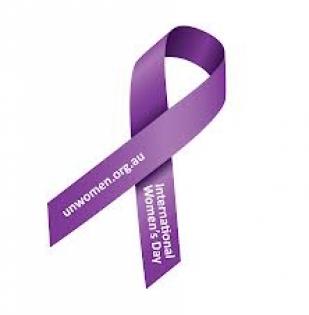Happy International Women’s Day! It’s more than 40 years since Germaine Greer’s The Female Eunuch and since Helen Reddy made I Am Woman famous. Much has changed for Australian women – so much so that some younger women don’t really understand what all the fuss is about at times.
But despite the many gains in those 40+ years, many women today still struggle with varying issues of single motherhood, appropriate child care, work-life balance, workplace flexibility, children’s education, parents’ aged care, health and financial security.
And there are significant gaps world wide in girls’ access to education – remember Malala – which is key to a future free from poverty; as well as access to basic health care, employment and a safe and secure living environment. According to the CEO of Caritas Australia, Jack de Groot, nearly 70% of the world's poorest people are women.
In Australia, other than in the public sector, there are still gaps in income equality and financial security. The Institute of Superannuation Trustees CEO said that the average nest egg for a man in Australia is $200,000 and half that for a woman – with neither amount being sufficient for a comfortable retirement.
While there are women in powerful positions in Australia, from the Governor-General and Prime Minister down, that often comes at a personal cost or sacrifice – for example, see our article on Julie and Julia. There is often an implicit acknowledgement that it’s not really possible to have a high-flying career at the same time as a good family life, unless a whole lot of other factors are in place. We also read daily of the barriers to women’s advancement in so many areas: in the corporate Board room, in senior executive roles, in sports administration and management.
One sector where women are over-represented and undervalued is the care sector.
The economic worth of care work was estimated at around $763 billion in 2009-10, with unpaid work amounting for 85% (or $650 billion). Unpaid care work can be in the form of parents, foster parents, grandparents or other relatives caring for children, or informal carers providing assistance in the activities of daily living to persons with disability, chronic illness or frailty from old age.
According to the Chair of economicsecurity4women, Sandra Cook, women contributed around 60% of the 21.4 billion hours of unpaid care work in 2009-10. Ms Cook says that is equivalent to:
- 50% of GDP (gross domestic product)
- 11.1 million full time workers and
- 1.2 times the total employed work force.
“What care work does is have a significant negative impact on the incomes and retirement savings of those who do it, as people with carer responsibilities are more likely to be not in the paid workforce at all, or in casual or part time work,” Ms Cook said. “Even when care work is paid, it is undervalued and underpaid.”
Less than 23% of women with carer responsibilities are in full time paid employment.
“Paid care work was worth $112 billion or 8.8% of GDP,” Ms Cook said. “That’s nearly 20% of all paid employment.”
Earlier this year, the Australian Human Rights Commission released a report that looked at the impact of unpaid caring responsibilities on workforce participation and retirement income and savings. The report examined unpaid care in 24 other countries and presented a series of recommendations and options for recognising and valuing unpaid care work, such as:
- strengthening anti-discrimination provisions in legislation to recognise family responsibilities
- expanding and strengthening leave provisions for unpaid carers
- supporting changes to workplace culture to introduce greater workplace flexibility – of benefit to unpaid carers and many others.
Organisations such as economicsecurity4women – which is backed by 19 women’s organisations – say that investing in the care economy is key political issue this year.
“Economic security enables women to make choices and live independently,’ Ms Cook says.
“It enriches all aspects of their lives and those of their families including their education, health, employment, personal safety and financial security.”
These issues go to the very heart of the fight for gender equality. Voluntary work generally, but especially unpaid care work, is a women’s issue because so many women do the caring and, therefore, it impacts on our individual futures as economicsecurity4women and the Human Rights Commission note.
But as with so many issues that are gender related it is also an issue for the nation - and not simply because women are half of the population. It is because care work is essential to families and communities: it is critical to our society and it is critical to how we define our sense of nationhood.




















__small.png)










